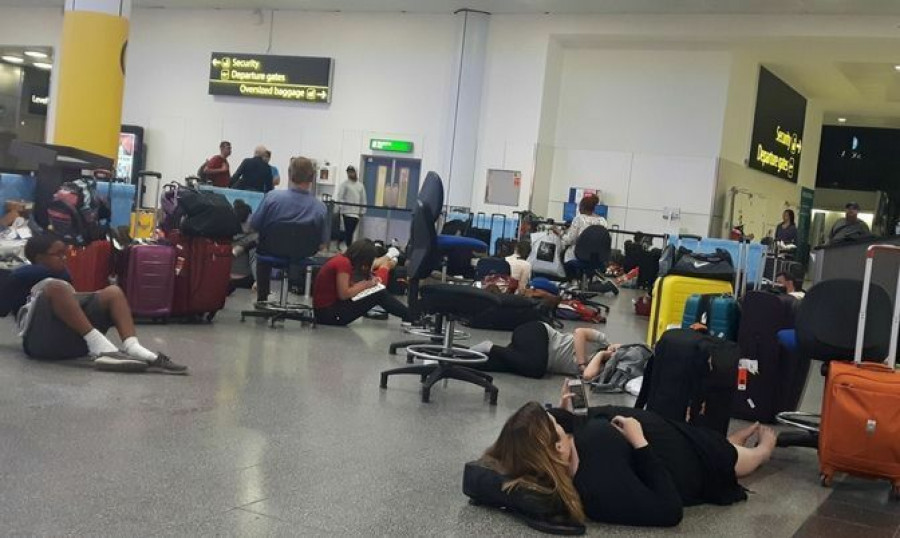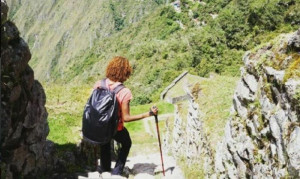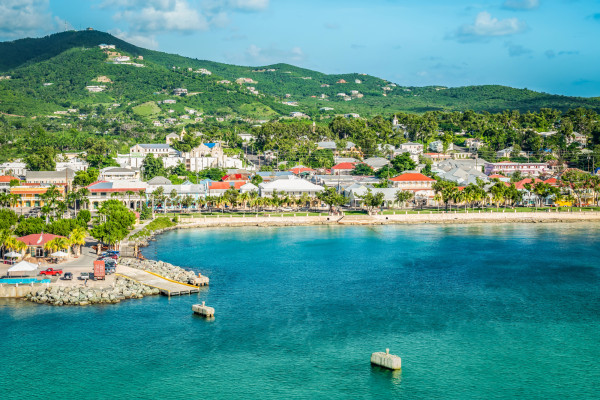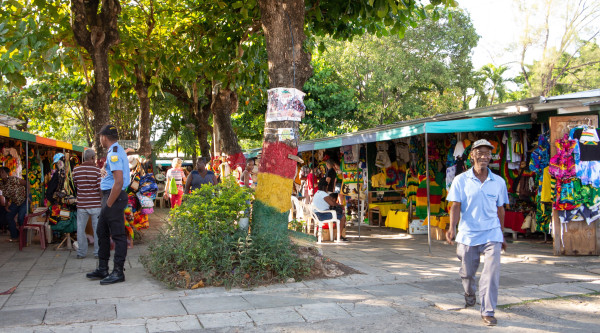After boarding, I must have fallen asleep because the last thing I remember is waiting on the tarmac for takeoff. I thought I was dreaming when I heard the pilot say “Okay folks, it seems like we have to return to Gatwick Airport.” But it was no dream. A tire had ruptured on takeoff, forcing the pilot to return to the airport in London.
As we disembarked the plane onto the tarmac, it reminded me of getting off the plane in the Caribbean where you’d have to wait for a shuttle or walk across the tarmac to the terminal. The only difference was, at Gatwick, the buses were waiting for us. After waiting for about three hours at the airport with no real news, folks started to get a little antsy. At this point we pretty much knew that this wasn’t a delay; we were not going to be flying on July 17th. We were told to wait in front of the Air Canada counter at the airport for next steps. The directions we received were as follows:
Collect your meal voucher from the counter;
Retrieve your bags that are now being returned from the aircraft;
Listen for your name to know which hotel you will be staying at as well as what time you will be departing tomorrow.
Seems simple, right? Well, what actually happened is far from simple. There was chaos on the ground when passengers realized that we were not flying that night. Travellers were now concerned about pre-arranged pickups in Toronto, connecting flights, important meetings that could not be missed, return-to-work days that could not be modified, and food (especially for children) as the original vouchers we received were not enough to cover a hot meal.
The evening continued to be a disaster as we waited close to eight hours to get a taxi to our accommodations for the night and were then taken to the wrong hotel. Thankfully, our hotel, Premier Inn, came through and saved the day. Not only did they have our rooms, they made the process of checking in very simple. Finally, after over 13 hours of the unknown, I got a bed, took a shower, and ate a meal and had a good night’s sleep before waking up the next day to start my journey home.
If I learned anything from that difficult experience, it was the importance of being prepared for travel emergencies before your trip. So, I leave you with these questions:
Are you prepared for a travel emergency?
There are unfortunately so many situations that can arise when faced with a travel emergency. It is best to be prepared for the unexpected rather than being left out in the cold should you need to make alternate arrangements. Having things like travel insurance, whether through your credit card, work, or one that you have purchased is a great way to ensure that you will have some protection to fall back on in case of emergency. Bear in mind that most insurance companies may ask you to pay out of pocket and then be reimbursed, so be sure to have available funds if need be.
Do you have cash on hand n the currency of the country you will be flying from (even if it’s the end of your trip)?
When returning from a trip, I always like to leave any extra funds I have in the local currency with friends and family, especially if I don't plan to return for a while. However, I realized with my recent experience that it is possible to be stuck while trying to return home and you may not have the ability to make purchases with a debit/credit card or even have access to an ATM. It is wise to leave yourself with an emergency reserve of cash in the currency of the country you’re leaving. At worst, you’ll take it home with you. If that is the case, you can either hold onto it for your next trip or convert it back to your country’s currency.
Do you have a credit card with an available balance?
We live in a day and age where many people have credit cards. However, according to the Canadian Bankers Association, close to 44% of people have cards carrying a very high balance. It is recommended to always keep a minimum of 50% of your balance available at all times. This is essential when you travel as you will ensure that you will be able to afford emergency expenses, e.g. flight change/rebooking, food, hotel, car, medication, etc.
Did you purchase travel insurance that includes coverage outside of medical?
Travel agents are obligated to offer travel insurance to our clients. You don't have to purchase this insurance through your agent, however, it is highly recommended that you have it. Contrary to the myth that travel insurance is only for medical expenses, you need to ensure that you have a comprehensive plan that can cover you for the following:
Cancellation - If you need to cancel your trip prior to travel. Pay attention to the terms so that you are aware of the timelines of which you can cancel and the % of the refund you will receive as different companies and plans will vary.
Interruption - If you have an emergency and will need to cut your trip short. This may cover things like changing or purchasing a new flight home, accommodations, food, medication, etc. Please become familiar with the terms as it will vary from company to company.
Flight/Travel Accident - If an accident occurs while in flight or on your trip. This acts as a form of life insurance during your travel.
Baggage Delay - If your bags are delayed for more than the specified amount of hours, you can receive reimbursement of a set amount per day. I always recommend that you carry an extra outfit, toothbrush, underwear, and medication in your carry-on just in case you arrive before your bags do.
These are just a few things to be cautioned of while travelling. While we wish for the best, it is always wise to be prepared for the unexpected and seek travel advice from a licensed travel professional.










